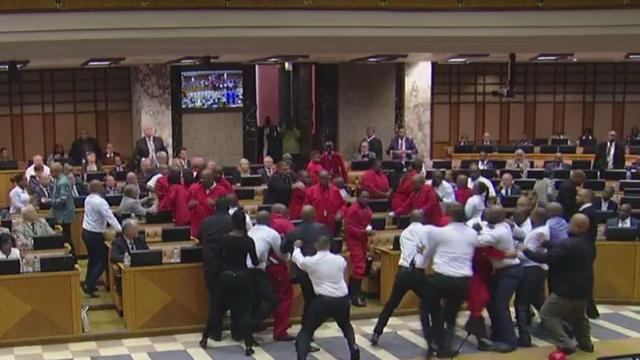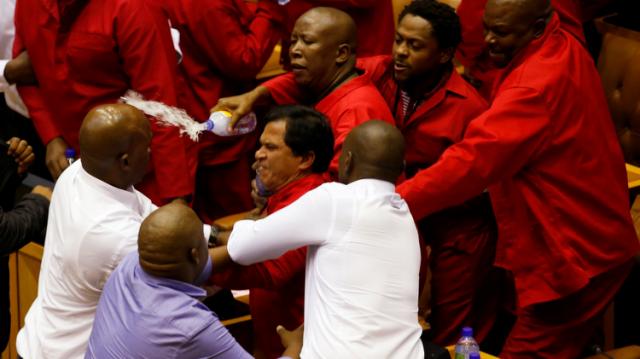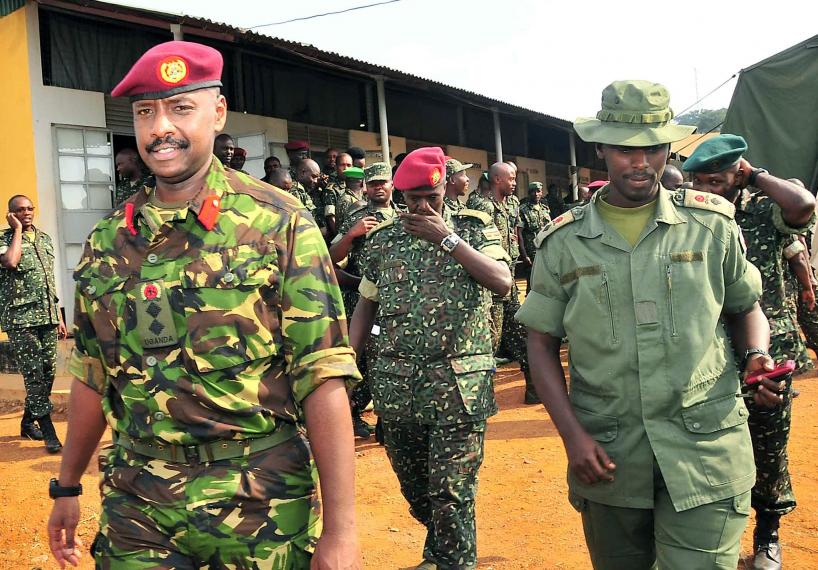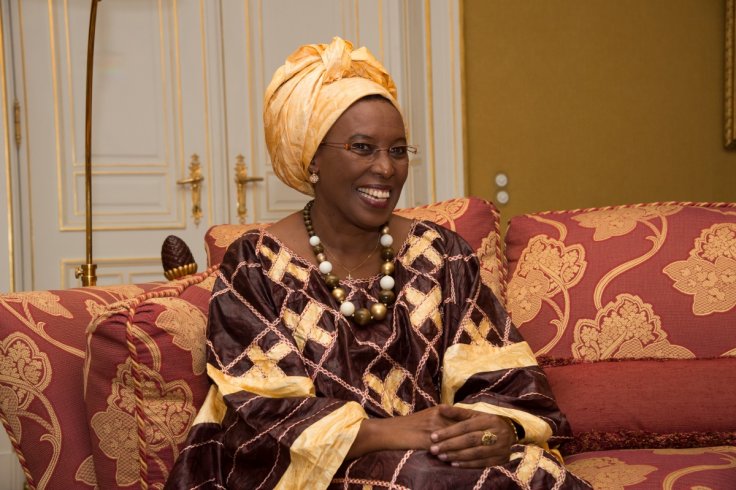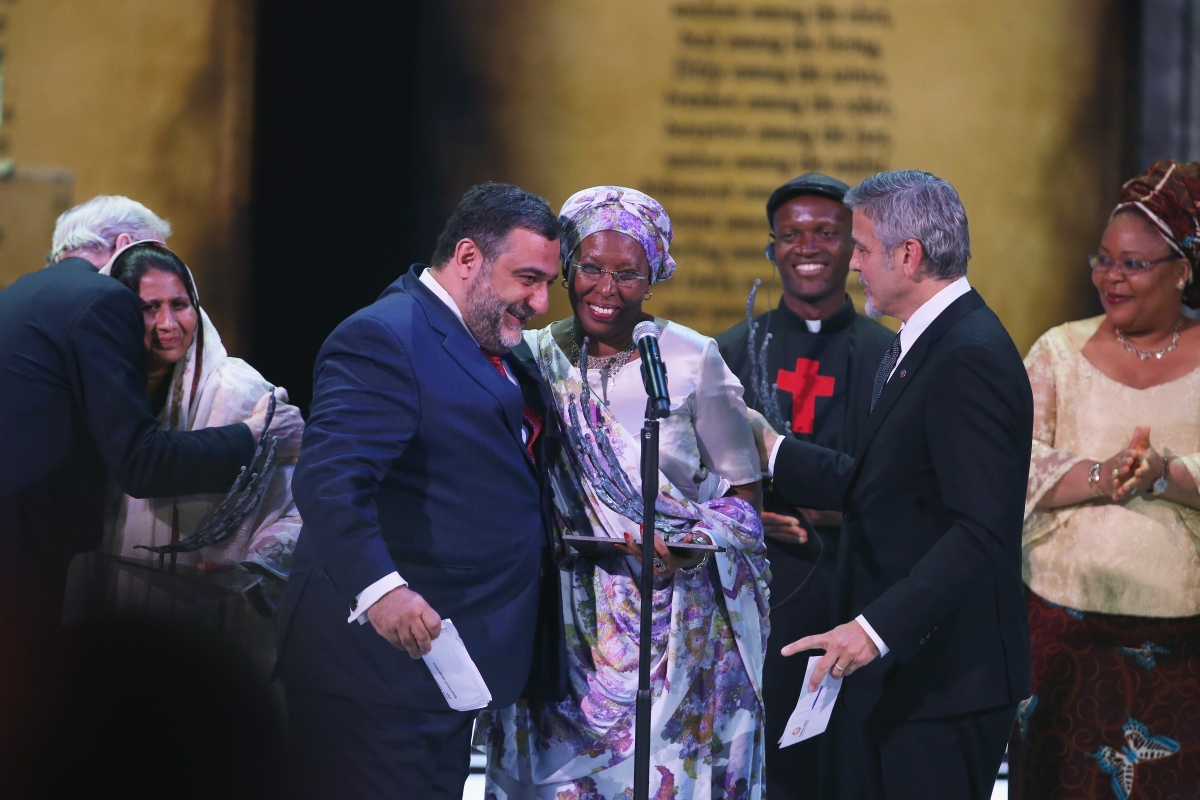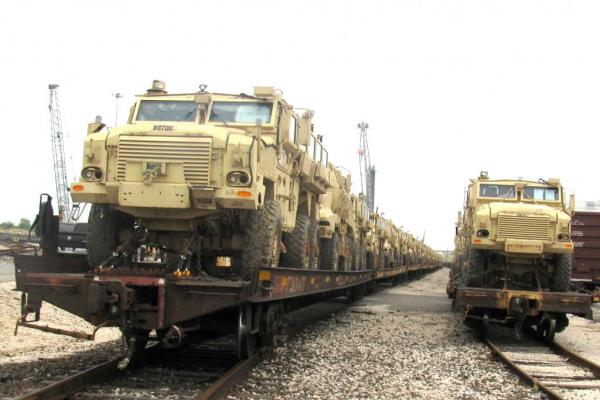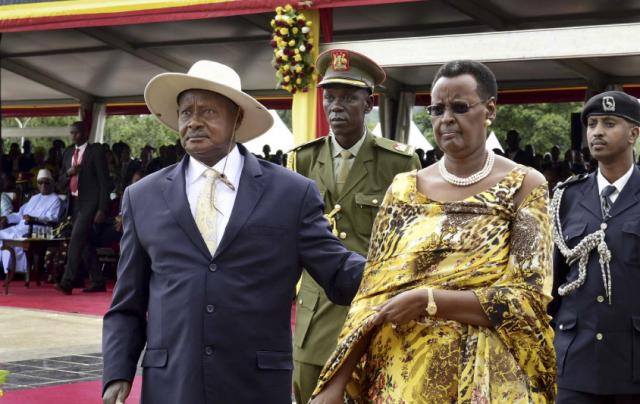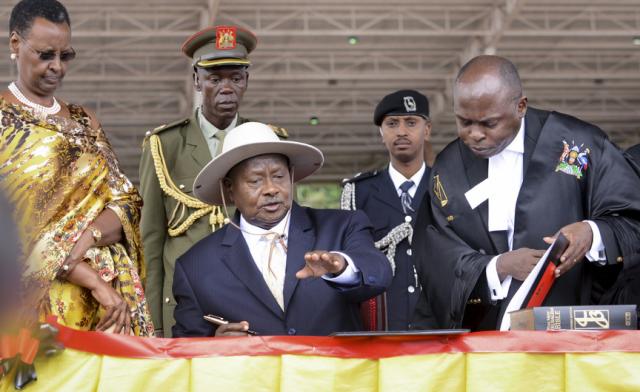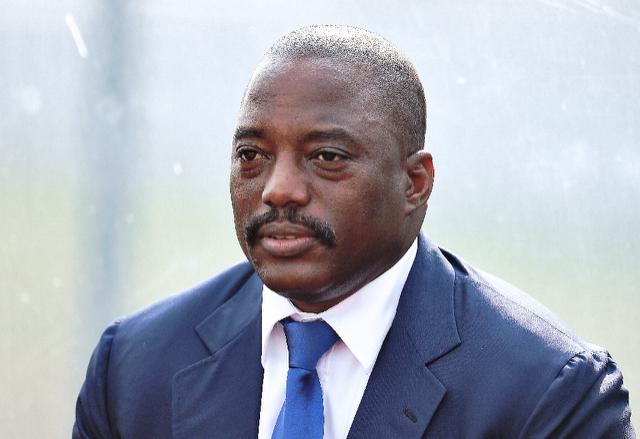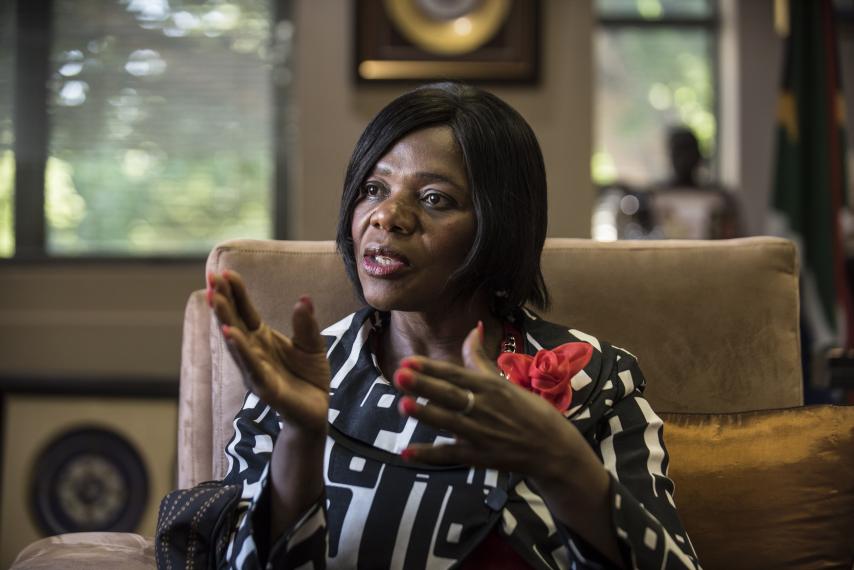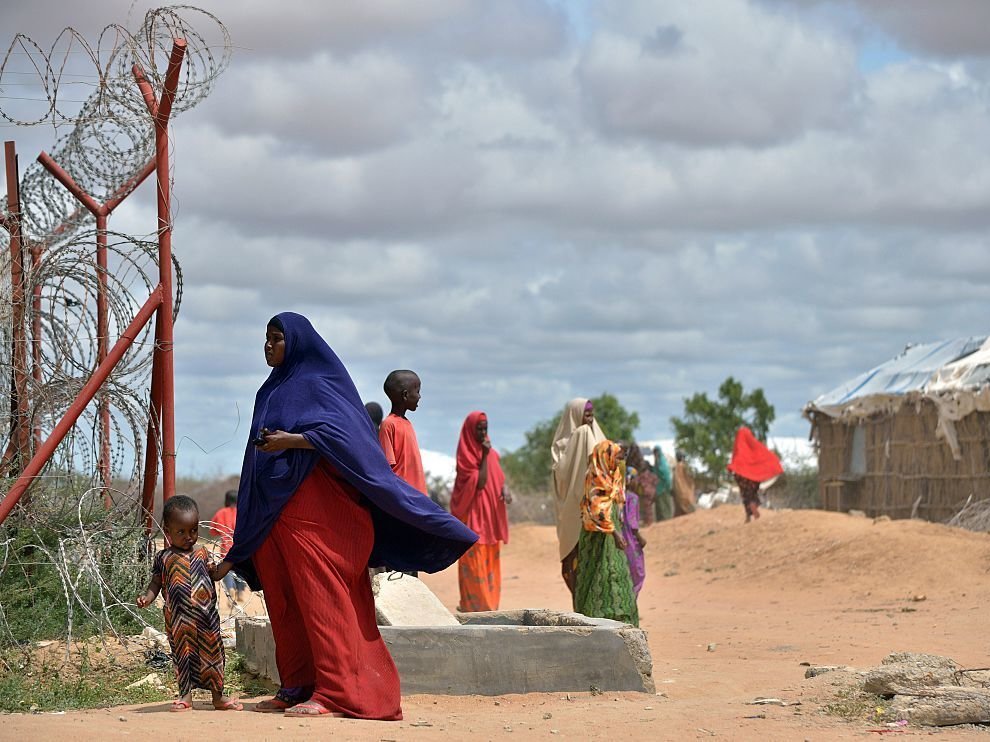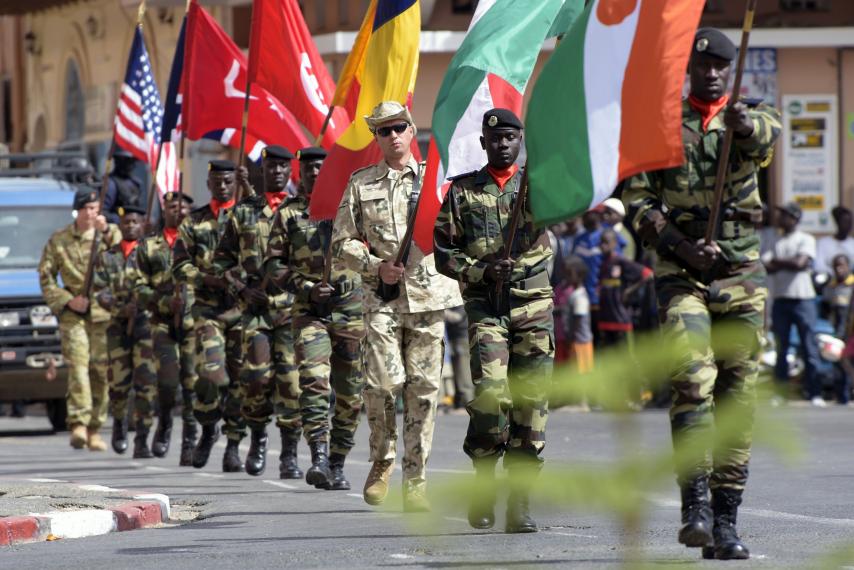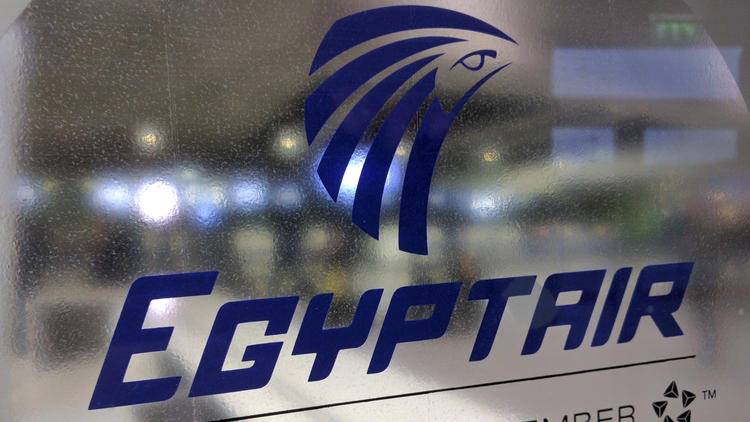
(Raphael Satter / AP)
AP – An EgyptAir flight from Paris to Cairo with 66 passengers and crew on board crashed in the Mediterranean Sea early Thursday morning, Egyptian aviation officials said.
Egyptian Prime Minister Sherif Ismail said it was too early to say whether a technical problem or a terror attack caused the plane to crash. “We cannot rule anything out,” he told reporters at Cairo airport.
The aviation officials later said the plane crashed and that a search for debris was now underway.
The “possibility that the plane crashed has been confirmed,” as the plane hasn’t landed in any of the nearby airports, said the officials, who spoke on condition of anonymity because they were not authorized to speak to the media.
EgyptAir said a “distress call” had been received from the plane two hours after it disappeared from radar, thought to have been an emergency beacon. The Egyptian military denied that any distress calls were received.
Egyptian military aircraft and navy ships were taking part in a search operation off Egypt’s Mediterranean coast to locate the debris of the plane, which was carrying 56 passengers, including one child and two babies, and 10 crew members. The pilot had more than 6,000 flight hours.
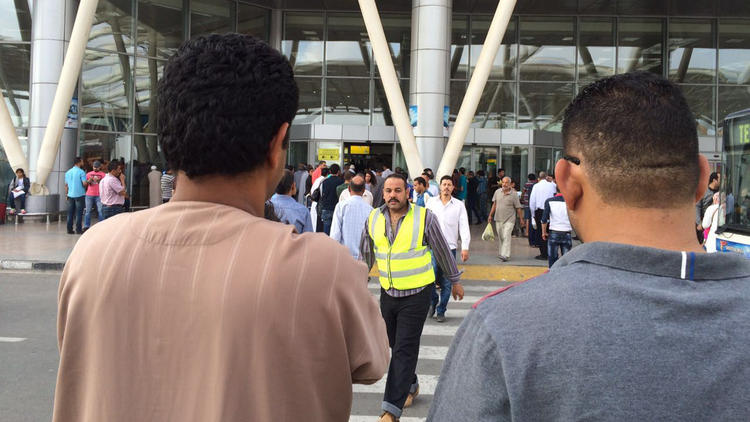
(Amr Nabil / AP)
French Foreign Minister Jean-Marc Ayrault offered to send military planes and boats to join the Egyptian search for wreckage.
“We are at the disposition of the Egyptian authorities with our military capacities, with our planes, our boats to help in the search for this plane,” he said. He spoke after French President Francois Hollande held an emergency meeting at the Elysee Palace.
Hollande spoke with Egyptian president Abdel-Fattah el-Sissi on the phone and agreed to “closely cooperate to establish as soon as possible the circumstances” surrounding the incident, according to a statement issued in Paris.
Those on board, according to EgyptAir, included 15 French passengers, 30 Egyptians, two Iraqis, one Briton, one Kuwaiti, one Saudi, one Sudanese, one Chadian, one Portuguese, one Belgian, one Algerian and one Canadian. Ayrault confirmed that 15 French citizens were on board.
Egypt’s state-run newspaper Al-Ahram quoted an airport official as saying the pilot did not send a distress call, and that last contact with the plane was made 10 minutes before it disappeared from radar. It did not identify the official.
Airbus is aware of the disappearance, but “we have no official information at this stage of the certitude of an accident,” the company’s spokesman Jacques Rocca said.
The Paris airport authority and the French civil aviation authority would not immediately comment.
Queries about the missing plane sent out to the U.S. Federal Aviation Agency were not returned early Thursday.
Around 15 relatives of passengers on board the missing flight have arrived at Cairo airport. Airport authorities brought doctors to the scene after several distressed family members collapsed.
In Paris, relatives of passengers on the EgyptAir flight started arriving at Charles de Gaulle Airport outside the French capital, where their loved ones were last seen alive.
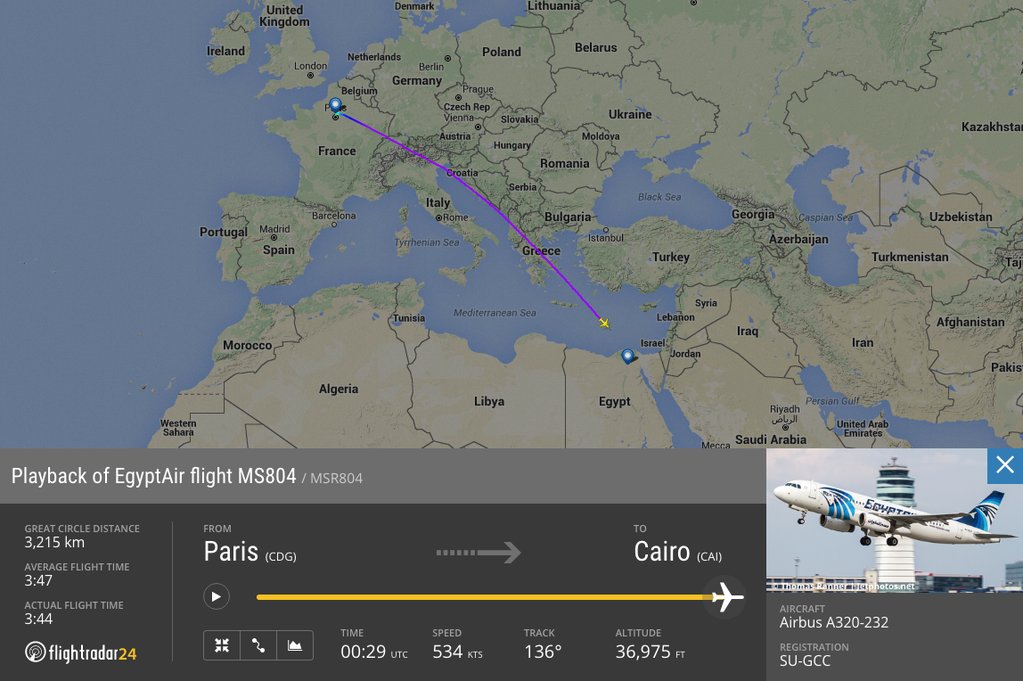
9:57 PM – 18 May 2016
A man and a woman, identified by airport staff as relatives of the flight’s passengers, sat at an information desk near the EgyptAir counter Thursday at Charles de Gaulle Airport’s Terminal 1. The woman was sobbing, holding her face in a handkerchief. They pair were led away by police and airport staff and did not speak to gathered journalists.
Greece joined the search and rescue operation for the EgyptAir flight with two aircraft: one C-130 and one early warning aircraft, officials at the Hellenic National Defense General Staff said. They said one frigate was also heading to the area, and helicopters are on standby on the southern island of Karpathos for potential rescue or recovery operations.
The Airbus A320 is a widely used twin-engine, single-aisle plane that operates on short and medium-haul routes. Nearly 4,000 A320s are currently in use around the world. The versions EgyptAir operates are equipped to carry 145 passengers.
The ubiquity of the A320 means the plane has been involved in several accidents over the years. The last deadly crash involving the plane was Germanwings Flight 9525, in which all 150 onboard died when one of the pilots intentionally crashed it in the French Alps.
An EgyptAir plane was hijacked and diverted to Cyprus in March. A man who admitted to the hijacking and is described by Cypriot authorities as “psychologically unstable” is in custody in Cyprus.
The incident renewed security concerns at Egyptian airports after a Russian passenger plane crashed in Sinai last October, killing all 224 people on board. Moscow said it was brought down by an explosive device, and a local branch of the Islamic State has claimed responsibility for planting it.
In 1999, EgyptAir Flight 990 crashed into the Atlantic Ocean near the Massachusetts island of Nantucket, killing all 217 people aboard, U.S. investigators filed a final report that concluded its co-pilot switched off the autopilot and pointed the Boeing 767 downward. But Egyptian officials rejected the notion of suicide altogether, insisting some mechanical reason caused the crash.

